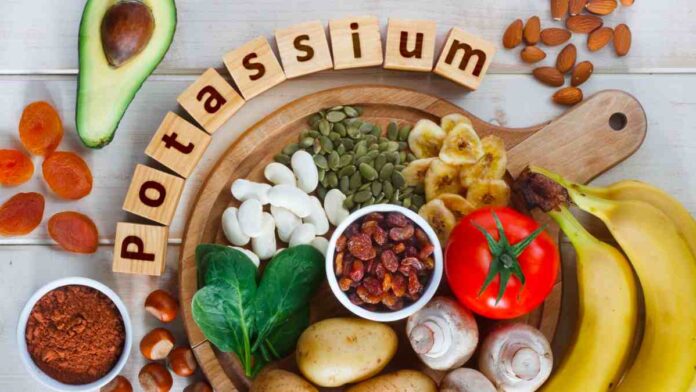Most individuals don’t consume enough potassium. Like calcium and salt, certain foods contain potassium. Potassium-rich meals are needed for good health. You must eat several potassium-rich foods.
If you need more potassium, add these items to your diet. Fresh produce is rich in potassium:
Bananas, oranges, cantaloupe, honeydew melon, apricots, grapefruit, prunes, raisins, and dates are potassium-rich.
Fruit juice high in potassium is another healthy option:
Milk and yogurt are two dairy items that are high in potassium (low-fat or fat-free versions are preferred).
Some fish have potassium in them. High potassium-content beans or legumes include lima beans, lentils, and soy
Additional foods high in potassium include:
1)Salt replacements (check potassium levels on labels)
2)molasses-flavored nuts
3)Livestock and meat
4)Bran cereal made from brown and wild rice
5)Whole-wheat pasta and bread
Women should consume 2,600mg and males 3,400mg of potassium daily.
Renal disease may alter your demands. Renal patients may need less potassium.Potassium buildup can damage muscles and nerves if your kidneys aren’t performing properly. Ask your doctor about potassium limits for renal illness.
Potassium wasn’t always included on the Nutrition Facts labels of packaged foods. But as of May 2016, potassium will now be reported under the new Nutrition Facts regulations. Prior to January 2020, businesses must change their food labeling. You should find it simpler to monitor your potassium consumption as a result for greater health. It lowers blood pressure as a start.
It accomplishes this in two distinct ways:
First, potassium aids in the removal of excess sodium from your body through your urine with the help of your kidneys. This is advantageous since a high salt diet might result in elevated blood pressure. Second, potassium aids in the relaxation or loosening of the blood vessel walls. They can develop high blood pressure when they are overly tight or inflexible, which might result in cardiac issues. Your heart benefits from getting adequate potassium.
In order for your muscles to flex or contract as they should, you also need to consume adequate potassium. And potassium is necessary for your nerves to function properly.
Conclusion:
Potassium loosens blood vessel walls and removes salt from the body through urine, making it vital to health. Potassium-rich foods including fresh fruit, juice, milk, yogurt, fish, beans, and legumes help kidney function. Women should consume 2,600mg and men 3,400mg of potassium daily. Renal disease may affect potassium needs, and potassium buildup can damage muscles and nerves. Potassium is now reported under the new Nutrition Facts regulations, making it easier to monitor potassium consumption for better health. It also supports proper muscle function and nerve function.



